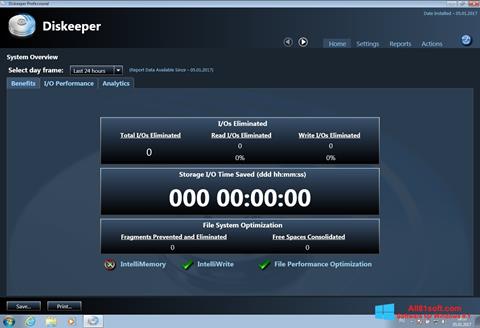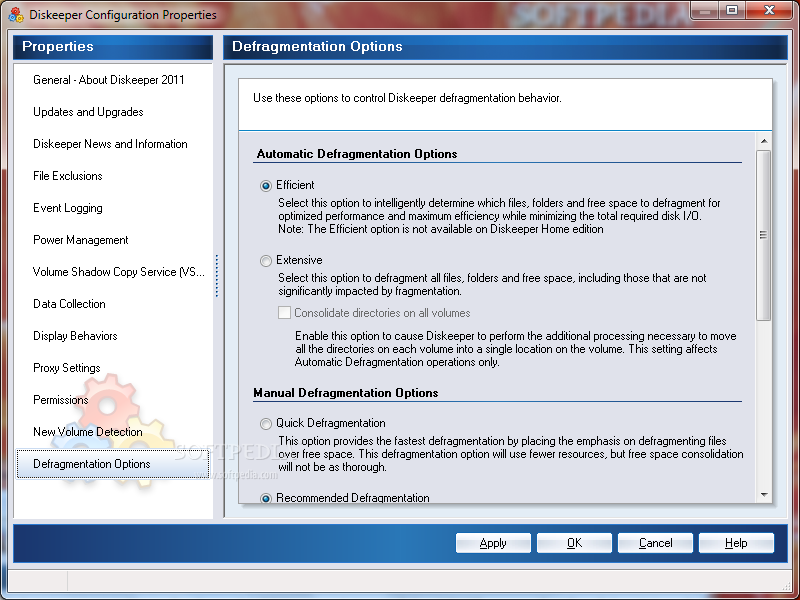


W8 file system reclaims deleted space much more efficiently than previous OS'es - but rather than run a full bloodied defrag on a disk that's had zillions of updates and file deletes you are much better off backing it up, re-formatting it and restoring it again.ģrd party backup / restore (unless operating in full disk clone mode - cluster by cluster - 99.9% of time unnecessary) reads complete files sequentially and saves in compressed mode to the backup disk. Windows Defender, MalwareBytes Pro and CCleaner ProĬlient of Windows Server 2012 R2 10 PC's, laptops and smartphones on the WLAN. Thermaltake Poseidon Z illuminated keyboard WD 6TB Red NAS hard drives x 2 in Storage Spaces (redundancy)Ĭorsair 750ax fully modular power supply with sleeved cablesĬorsair Air 540 with 7 x 140mm fans on front, rear and top panelsĬorsair H110i GT liquid cooled CPU with 4 x 140" Corsair SP "push-pull" and 3 x 140mm fans GeForce GTX 980ti SC ACS 6GB DDR5 by EVGAĬreative Sound Blaster X-Fi Titanium HD, Corsair SP2500 speakers and subwoofer Intel i7-3770k, Overclocked to 4.6GHz (46x100) with Corsair H110i GT cooler Unless you are doing an exact cluster by cluster restore the restored image will have all the "wasted chains" etc all removed and the data on the disk optimized. If you want to re-organize your disk drives a good solution is to take an image backup using a program such as acronis, re-foirmat the drive and then restore the image. The only time a defrag might be necessary is when running a Virtual machine due to the way in which the "Virtual Disks" can grow - but this is usually handled within the virtual machine environment such as VMware where their own utilities are used to "defrag the virtual disks". W8 is optimized anyway so any 3rd party defrag is really uneeded in any case. SATA 7200 RPM's are OK and of course these days with SSD's then poor disk performance can be a thing of the past. Slow disk performance is usually due to poor HDD's. In over 30 years of using various flavours of Windows (and Linux too) I have NEVER needed to defrag a drive - and on the very rare occasions I've experimented with this stuff it didn't seem to make an IOTA of difference. I also keep two USB 3 thumb drives (A: and B:) attached with boot recovery and security stuff that I can boot into from BIOS in case of emergency M-Audio Axiom 61 keyboard controller expression pedal sustain pedal Windows 8.1 Pro with Media Center (64-bit)ġ6 GB G.SKILL Ripjaws X DDR3 SDRAM DDR3 1600 (4 banks 4GB DIMM DDR3 8-8-8-24 5-32-12-7 1T 1.5V)Ģ of Seagate Barracuda XT ST32000641AS (2TB ea.) ġ of Seagate Barracuda Green ST2000DL003 (2TB) ġ of Hitachi Deskstar HDS722020ALA330 (2TB) Ģ of Seagate Desktop ST4000DM000-1F2168 (4TB)Įvent Studio Precision 6 powered audio monitors īoston Acoustics CS Sub 10 Powered Subwoofer


 0 kommentar(er)
0 kommentar(er)
